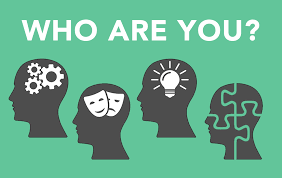
As our Year 12 students approach the final sprint to their Higher School Certificate, one of the outcomes of the COVID pandemic appears to be that universities and employers will be less reliant on simple measures like the ATAR to determine who gets into courses and who gets the job.
What is the ATAR?
The ATAR is a rank, not a mark. The Australian Tertiary Admission Rank (ATAR) is a number between 0.00 and 99.95 that indicates a student’s position relative to all the students in their age group (i.e. all 16 to 20 year olds in NSW). So, an ATAR of 80.00 means that you are 20 per cent from the top of your age group (not your Year 12 group). Universities use the ATAR to help them select students for their courses and admission to most tertiary courses is based on your selection rank (your ATAR + any applicable adjustments). Most universities also use other criteria when selecting students (e.g. a personal statement, a questionnaire, a portfolio of work, an audition, an interview or a test). The average ATAR is usually around 70.00.
Because of the restrictions placed on face-to-face teaching and assessments, who the person is and what their capacity and potential for success is, is going to be judged using different and, possibly, more accurate criteria than this single score.
“A federally commissioned report wants high school students to focus on building a “learner profile” that reflects the skills and knowledge they have gathered over 13 years of education instead of worrying about how to boost their ATAR. The proposed profile would include non-scholastic experience such as work, sport and volunteering alongside academic results and would reflect skills such as collaboration and problem solving. The learner profile should form the basis of a digital education passport, which students could continue to curate into adulthood by adding new qualifications or experience” Call for ‘learner profile’ of students to end dominance of ATAR. SMH.

Given that many tertiary institutions and employers will not be able to use the ATAR as their prime determinant of suitability, they will be looking for individual capacities. The things employers and universities will be looking for are:
- Critical thinking, problem solving, reasoning, analysis, interpretation, synthesising information
- Research skills and practices, interrogative questioning
- Creativity, artistry, curiosity, imagination, innovation, personal expression
- Perseverance, self-direction, planning, self-discipline, adaptability, initiative
- Oral and written communication, public speaking and presenting, listening
- Leadership, teamwork, collaboration, cooperation, facility in using virtual workspaces
- Information and communication technology (ICT) literacy, media and internet literacy, data interpretation and analysis, computer programming
- Civic, ethical, and social-justice literacy
- Economic and financial literacy, entrepreneurialism
- Global awareness, multicultural literacy, humanitarianism
- Scientific literacy and reasoning, the scientific method
- Environmental and conservation literacy, ecosystems understanding
- Health and wellness literacy, including nutrition, diet, exercise, and public health and safety.

Many universities are looking at portfolios of work, civic action and leadership as indicators of who should be accepted into their courses. Early entries based on a variety of measures are becoming much more popular. Admission staff and employers are now looking at the real person, rather than a number.
Who you are and what you can do will become much more important.
The pandemic is making the concept of holistic education vital to our students entering the next stage of life. This means our approach of working with our families to produce students who are academically agile, self-motivated, community-minded and of good character will provide an advantage. It also means our students will need to be able to communicate, in writing and in person, to reveal, to potential employers and universities, their aspirations, achievements and potential.
They will need to balance the concept of modesty against the need to fully exhibit their talents.
They will need to develop a vocabulary that allows for clear exposition without arrogance. This is going to be interesting for all of us.

A whole new skill set has to be developed, and not just for our HSC cohort.
As part of my current studies, I have completed a leadership profile and found a new word to describe my professional self. It appears I am a Philomath.
PHILOMATH: Your objective is to learn new things. Due to your love of learning people tend to say you are a very curious person. You like to experiment with different styles of learning as well – in the end, there is something to learn from that as well, right? As it’s the processes itself that excite you, you are not necessarily interested in becoming a subject matter expert. Instead you prefer learning something fast and then shift to a new thing to learn. Thanks to this strength, you learn very fast and thrive in short projects and dynamically changing environments. Needless to say, you will always be the one to contribute with new knowledge to your team as well.
Now, that sounds better than some of the descriptors that have been used when commenting on my personality traits. I think I might be able to use it!
Mr Terry Muldoon Principal, St Columba Anglican School |

